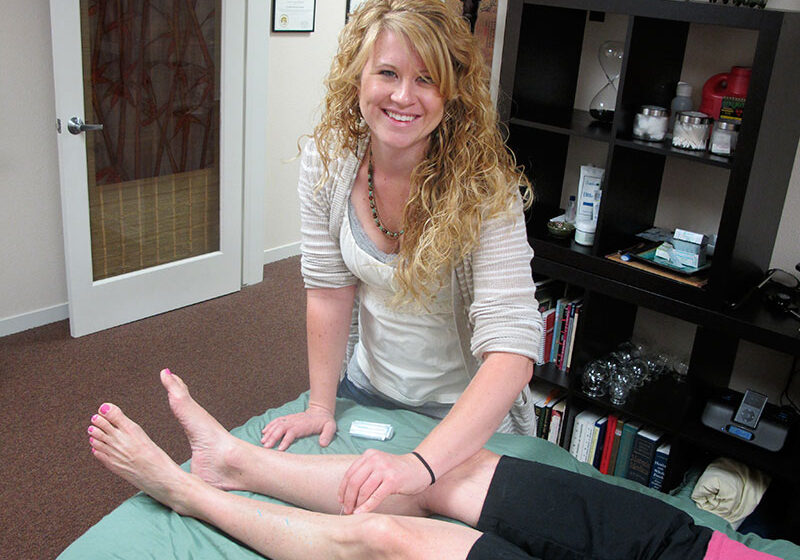Between midnight feedings, bad dreams, and bouts with the flu, most parents are well acquainted with the wee hours. Familiar, too, is the groggy haze that lingers the morning after an all-nighter. When adults miss sleep, it’s hard to hide. We gulp coffee, yawn, and yearn for our beds.
Children are better at hiding a sleep deficit. “Tired children don’t react like adults; they often become more active,” says Dr. Kathy R. Gromer of the Minnesota Sleep Institute. So that little whirling dervish who seems so full of energy might be running on empty when it comes to sleep.
Sleep deprivation in children leads to irritability and learning difficulties, Gromer says. Restful sleep is as vital as proper nutrition for children and missing out can impair memory and attention span, along with growth and development. Scientists have recently found a link between sleep loss and insulin resistance, a contributing factor in diabetes and obesity.
Still, sleep has fallen off the priority list of many American families. According to the National Sleep Foundation, most kids aren’t getting enough. Toddlers need up to 14 hours, preschoolers need up to 12 hours, and school-age children need up to 11 hours. In addition to setting and sticking to an appropriate bedtime, you can help encourage restful sleep by filling your child’s plate with nutrients like these:
Metabolic masters: B vitamins
“Vitamins B6 and B12 contribute to normal nervous system function and amino acid metabolism,” says Kristin Kirkpatrick, registered dietician with the Lifestyle 180 program at Cleveland Clinic. “These essential water-soluble vitamins aid in calming and relaxing the body by assisting in the formation of neurotransmitters like serotonin.”
B6 can be found in fortified cereals, bananas, potatoes, chicken breast, and pork. Liver is an excellent source of B12, but don’t worry if your kids won’t go for it – kid friendly foods like chicken, eggs, milk, yogurt, tuna, and yes, even cheeseburgers, are also good sources. B12 is only found naturally in animal products, so individuals with special diets need to take steps to ensure that they’re getting enough; vegans are encouraged to take a B12 supplement daily.
Talking turkey: Tryptophan
Tryptophan is an amino acid that calms the brain by aiding in the production of serotonin and melatonin, helping the body slow down and feel sleepy. Insulin helps tryptophan enter the brain – so eating tryptophan-rich foods along with complex carbohydrates, which stimulate the release of insulin, helps the body make the most of this snooze-inducer.
Thanksgiving dinner is known to bring on the sandman, thanks to tryptophan-rich turkey. Other foods rich in tryptophan include meat, poultry, seafood, dairy, soy products, whole grains, lentils, peanuts, sesame seeds, sunflower seeds, and eggs. Whole-grain toast with peanut butter, whole-grain cereal with milk or soy milk, or turkey and cheese on whole-grain crackers are good options for bedtime snacks – just make sure to serve them an hour before bedtime, to give tryptophan time to reach the brain and work its sleepy-magic.
Dairy good: Calcium
Warm milk is a time-honored sleep-inducer, and science supports the tradition. Calcium helps the brain use tryptophan to make melatonin. Dairy foods like yogurt, milk and cheese, each with at least 300 milligrams of calcium per serving, can help your child prepare for sleep. Many non-dairy foods are also calcium rich, including salmon, oatmeal, tofu, rhubarb, spinach, almonds and calcium-fortified orange juice.
Muscle power: Magnesium
Magnesium helps the body absorb calcium, relaxes the muscles, and helps ease leg cramps, which can wake children at night. Dark green leafy vegetables, many meats and nuts, and whole grains are good sources. Black beans, artichokes, barley, pumpkin seeds, oat bran, and almonds all provide at least 100 milligrams of magnesium per serving.
Brain booster: Docosahexaenoic acid (DHA)
Emerging research suggests that omega-3 fatty acids play a role in healthy sleep. Researchers from Connecticut found that babies whose mothers had higher levels of DHA had more mature sleep patterns, with more quiet sleep at night, and more wakefulness during the day. Breastfeeding mothers can pass DHA to their infants by consuming oily fish, flax seed, flax seed oil, and spirulina. Kids can get DHA from an increasing array of omega-3-fortified foods including milk, eggs and juice.
Pump it up: Iron
Numerous studies link restless legs syndrome to low levels of stored iron, so kids with iron deficiencies may be at higher risk for disturbed sleep. “Iron is needed to create dopamine, a neurotransmitter. In fact, dopamine-enhancing medications have been used to treat RLS symptoms, so RLS may be helped by adequate iron intake,” says registered dietician Pam Schoenfeld of Reinvent Your Diet, LLC. Good dietary sources of iron are beef, liver, green leafy vegetables, legumes, and fortified cereals. Since excess iron can be harmful, Schoenfeld recommends having iron levels checked before starting a high-iron diet or iron supplements.
When it comes to healthy rest, there are a few dietary don’ts, as well: Anything containing large amounts of caffeine and sugar should be avoided in the evening. So a cola beverage, with 65 grams of sugar and 57 mg of caffeine per 20-ounce bottle, will do your child no favors come bedtime. Some children are energized by a large meal; if yours is one of them, dinner should be served well in advance of lights-out.
“Even with an excellent diet, children still benefit from a consistent bedtime and a regular bedtime ritual, like reading a book with a parent,” says Gromer. Combining healthy sleep habits like these with proper nutrition can lead to more sweet dreams for the entire family.
Posted in: Health & Nutrition
Comment Policy: All viewpoints are welcome, but comments should remain relevant. Personal attacks, profanity, and aggressive behavior are not allowed. No spam, advertising, or promoting of products/services. Please, only use your real name and limit the amount of links submitted in your comment.
You Might Also Like...

How Parents of Kids with Food Allergies Can Support Nonallergic Siblings
I NEED pizza!” my 6-year-old screams from our minivan’s back seat. I inhale slowly to avoid yelling back. A few hours earlier I was crouched over my 4-year-old, giving her […]

There’s A Good Reason for Mommy Brain After All
Whether you’re a new mom or your kids are in school or getting ready to attend school, do you feel like your brain has gone to mush? Between exhaustion, stress […]

On Pins And Needles – The Benefits Of Acupuncture
For a woman who admits being extremely afraid of needles, Patti Furnari is a huge fan of acupuncture. Having dealt with the debilitating pain of migraines for over 25 years, […]

Winter Squash Season at the Farmer’s Markets
With the weather changing, leaves falling and holidays approaching it’s one of my favorite times in the market — Squash Season. In Chico we are fortunate to have many farmers […]



